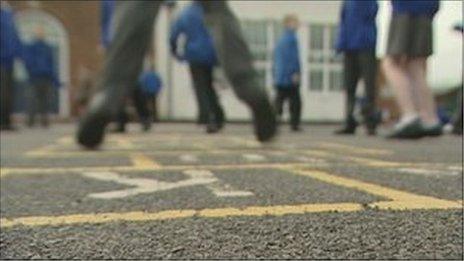Councils cut rises after academy underestimate
- Published
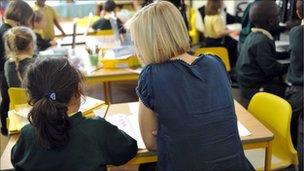
Councils provide schools with a range of support services
Proposed budget cuts to councils in England have doubled to about £1bn after the government underestimated the growth of its academies programme.
Several councils had already contested the amount of money taken from them for services they no longer provide to the state-funded, independent schools.
But it has emerged that the cut will have to be increased as more schools have converted than expected.
The government said the school services in question were double-funded.
When a school becomes an academy, it gains control of a tranche of funding that was previously held back by the local authority to provide services across the area, such as pupil welfare, building work, administrative support and arts and outdoor education.
In January, the Department for Education said it would reduce funding for local authorities across England by a total of £413m - £148m this year and £265m next year - to account for this.
But in May, 23 councils threatened legal action, saying the method used to calculate the cut had breached guidelines.
They said the government was taking too much money by deducting the amount it would cost the academies to run the services in question themselves.
They argued that this overestimated the saving the local authorities would make, given that they would still have to provide the same services to other schools.
'Fundamentally flawed'
At the time, the Local Government Association said that only £60m would be saved from local authority budgets for every 200 academies created.
It also argued that it was not fair to apply the same cut across all local authorities, regardless of how many academies they had.
In response to the legal challenge, the DfE opened a month-long consultation in July on the issue.
But in the consultation document, external, it recalculated the likely budget cut, saying it had based its figures on "significant underestimates" of the number of schools that would convert to become academies.
The number has expanded from about 200 in May 2010 to 1070 in August 2011, as the government has promoted the policy which it says will drive up standards.
The new estimated local authorities cut is between £940m and £1.055bn over two years.
David Simmonds, chairman of the LGA's children and young people programme board, said it was "very concerning that a further substantial top-slice is now being contemplated".
He said the LGA had warned the government that the funding methodology was "fundamentally flawed", and said a rethink was needed.
"Councils of all political control and irrespective of their enthusiasm for the academies programme are quite rightly concerned about the significant pressure these proposals could place on council tax or other vital local services," he said.
Local authorities are already facing overall budget cuts amounting to 28% over four years, which were announced in the October 2010 spending review.
Alan Wood, chair of the finance and policy committee the Association of Directors of Children's Services, said that to absorb the academies cut, some councils would have to consider reducing their schools services budgets, others would look to take funds from youth or early years work, or other services such as libraries.
"This will mean a real reduction in the public service portfolio," he said, adding that it was likely to hit areas with few or no academies hardest as the money would not be replaced via individual school budgets.
He also criticised the government's underestimation of the number of academies.
"If a local authority made such a mistake in its planning, they would quite rightly be criticised and slammed into inspection by Ofsted," he said.
'Not good value'
The DfE argues that when academies were initially founded under Labour, no money was removed from local authority budgets to balance the funds the schools received directly for area-wide services.
This, it says, has led to some of the services being effectively funded twice.
"We cannot continue to fund local authorities for services they no longer need to provide to academies. It is not good value for the taxpayer," said a DfE spokesman.
"Our consultation provided an opportunity to look at funding again because greater numbers of schools are becoming academies than initially anticipated.
"We are now considering the responses in detail and will give them careful consideration," the spokesman said.
- Published16 June 2011
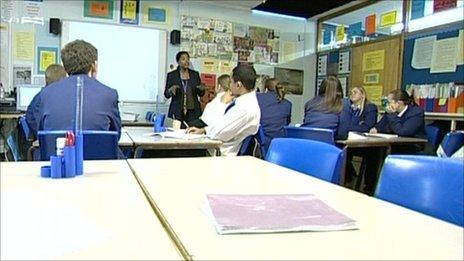
- Published11 June 2011
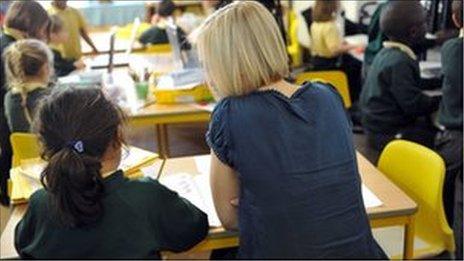
- Published3 May 2011

- Published7 May 2016
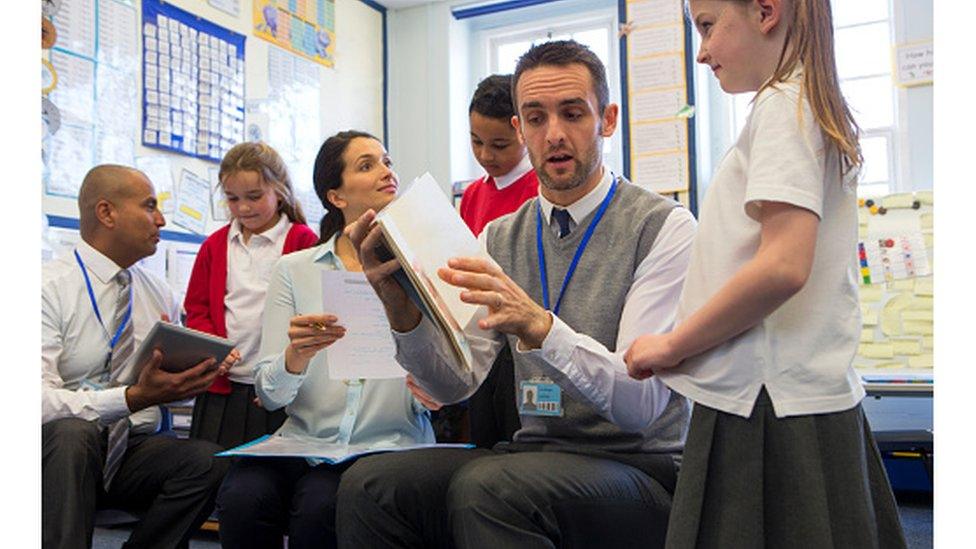
- Published24 January 2011
- Published24 April 2011
- Published20 April 2011
